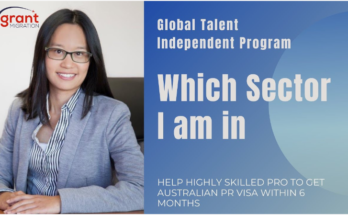US residents, citizens, or temporary workers (H1B, L1, E visa, etc.) living in the USA can invite their parents, relatives, or friends to visit the USA based on what is called the US Visa Sponsorship program.
A B2 visitor visa (Tourist Visa) can be applied by a foreign visitor at a US consulate in the applicant’s home country. If the purpose of the trip is not temporary, or if the purpose of the trip is something other than tourism, like business, study, or work, there is a separate visa category and qualifying criteria for each of these purposes.
What is US Visa Sponsorship?
In general, sponsorship means the sponsor is taking the responsibility to take care of all the expenses for the visitor’s trip.
To be able to go to the US to work, you must first find a job. The employer must be willing to hire someone who is not from the US. The company you plan to work for must know that you are not a US citizen or Legal Permanent Resident (LPR). If the employer is aware and still wants to hire you, then they agree to sponsor you.
RELATED: How to Apply for American Visa Lottery Sponsorship Program
A US visa or employment sponsorship means that the employer in the US is hiring you. They are guaranteeing to the US visa authorities that you will be a legal working resident. The employer will state that you will work the job position they hired you for. Also, they must guarantee that you will get the same salary as a US citizen or LPR in the same job position.
The employer visa sponsorship is not exactly a letter as most people think. They are a set of documents that is sent to the US Citizenship and Immigration Services (USCIS). It is not only one sponsorship letter as most people think. The documents must have different forms and letters with the employment information. They must also state that the employer is willingly hiring the employee.
How Can US Visa Sponsorship Help?
Although consulate and visa authorities look for the overall eligibly of the visa applicant, having a legitimate and qualified sponsor can increase the chances of getting the visitor visa.
Sponsorship indicates that the person sponsoring the trip will be able to bear the cost of travel USA and fewer chances of becoming a public burden. It makes it easy for authorities to establish a contact/relationship with a US resident, just in case. This may be useful from a security perspective as well.
How Can I Get Sponsorship for a US Visa?
Here are the top 6 ways to find an H1B visa sponsor for 2022 so that you can file your petition:
- Look for a Job in the H1B Visa Sponsors Database. …
- Apply for the Job and Get an Offer. …
- Find an Internship. …
- Look for Boutique Consulting Companies. …
- Look for Global Consulting Companies. …
- Find a Job at a US University.
How to Invite Parents or Family Members to the USA Vis Visa Sponsorship
If you legally live and earn in the USA and want to invite/sponsor a trip for your parents, relatives, or friends, you can do so by providing certain documents, most commonly an Affidavit of Support Form I-134, a letter of invitation, and supporting documents as evidence to your financial ability to bear the expenses of the trip.
What are the allowed reasons to sponsor a tourist visa?
Family get-togethers, weddings, funerals, medical treatment, graduation ceremony, or any other event, which the consulate officer can see as a legitimate reason for the trip.
Is Sponsorship Necessary for a US Visitor Visa?
Sponsorship is not mandatory for US Visitors or tourist visas. An individual who has a good financial background and who meets the other requirements for a visa grant can get a visitor visa without a sponsorship.
Remember that having a sponsor does not guarantee that the visa will be granted. Individual applicants must fulfill and qualify for a US visa. Consulate will judge the applicant according to various criteria including a background check, a valid reason for travel, strong ties to the home country, evidence of funds, legitimacy of the travel plan, etc.



